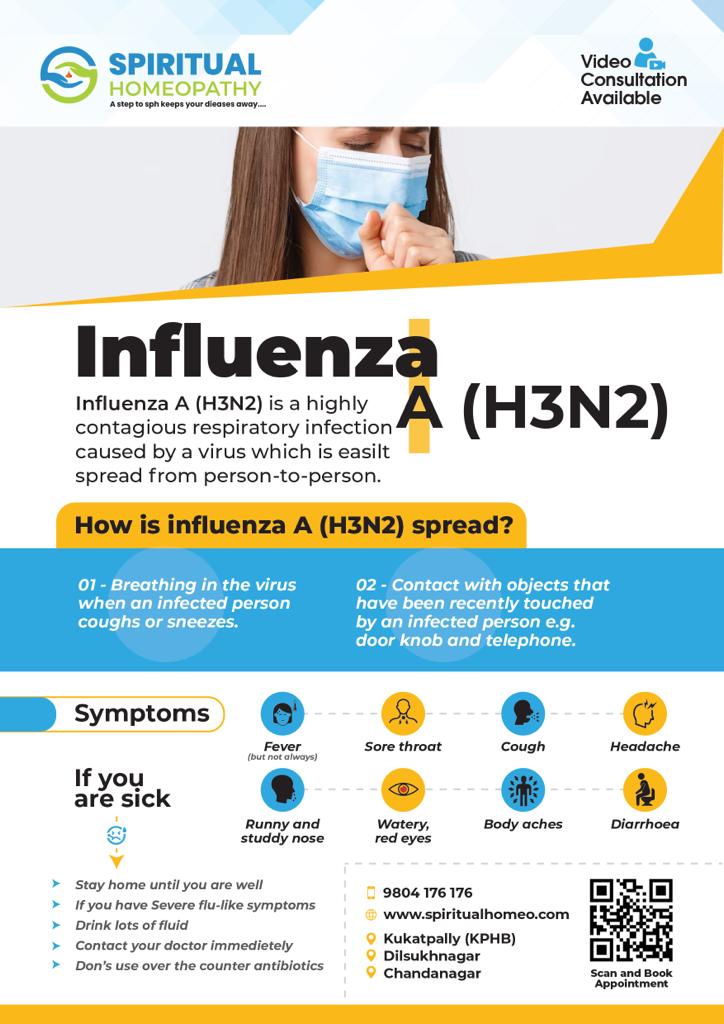Influenza, commonly known as the flu, is a contagious respiratory illness caused by influenza viruses. It can affect people of all ages and can lead to mild to severe illness, and in some cases, it can even be fatal.
Here are some key points about influenza:
-
Symptoms: Influenza symptoms can vary but typically include fever, cough, sore throat, runny or stuffy nose, muscle or body aches, headache, fatigue, and sometimes vomiting or diarrhea (more common in children). Symptoms usually come on suddenly.
-
Transmission: Influenza is highly contagious and primarily spreads from person to person through respiratory droplets when an infected person coughs, sneezes, or talks. It can also spread by touching surfaces contaminated with the virus and then touching the nose, mouth, or eyes.
-
Seasonal nature: Influenza is seasonal and tends to be more prevalent during the fall and winter months in temperate regions. It circulates year-round in tropical regions.
-
Vaccination: The most effective way to prevent influenza is through vaccination. Annual flu vaccines are recommended, as the circulating strains of the virus can change each year. Vaccination not only protects individuals from getting the flu but also reduces the severity of illness if they do get infected.
-
medication: Drugs can be prescribed by healthcare professionals to treat influenza .Homeopathic medications can help reduce the severity and duration of symptoms if taken early after the onset of illness. They may be particularly beneficial for individuals at high risk of complications or with severe illness.
-
Complications: Influenza can lead to complications, especially in certain populations, such as young children, older adults, pregnant women, individuals with chronic medical conditions, and those with weakened immune systems. Complications may include pneumonia, sinus and ear infections, bronchitis, and worsening of existing medical conditions.
-
Prevention measures: In addition to vaccination, practicing good hygiene can help prevent the spread of influenza. This includes frequently washing hands with soap and water, using hand sanitizers when soap is not available, covering the mouth and nose with a tissue or elbow when coughing or sneezing, avoiding close contact with sick individuals, and staying home when feeling unwell.
-
Seek medical care: If you suspect you or someone else has influenza, it is essential to seek medical care, especially if you are at high risk for complications. Healthcare professionals can provide a diagnosis, recommend appropriate treatment, and offer guidance on managing symptoms and preventing the spread of the virus.
It’s important to note that the flu is different from the common cold, although they share some similar symptoms. If you have concerns about influenza or believe you may be experiencing flu-like symptoms, consult with a healthcare professional for proper evaluation and guidance.



